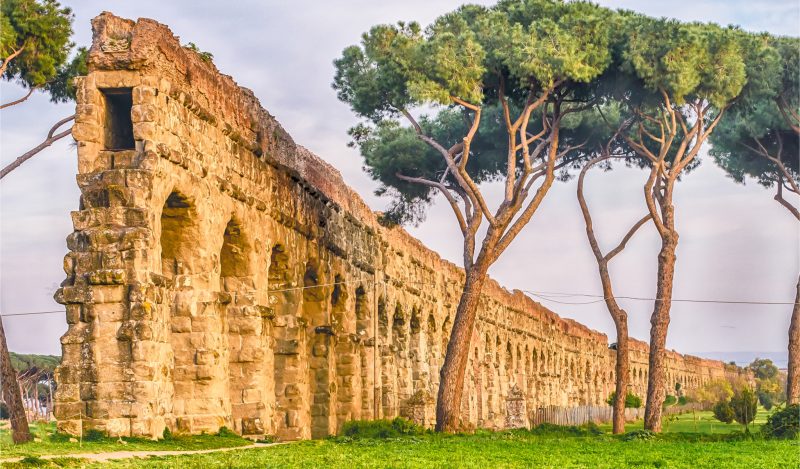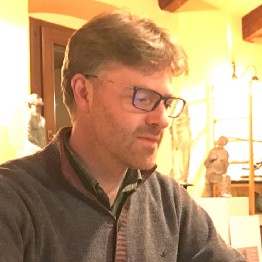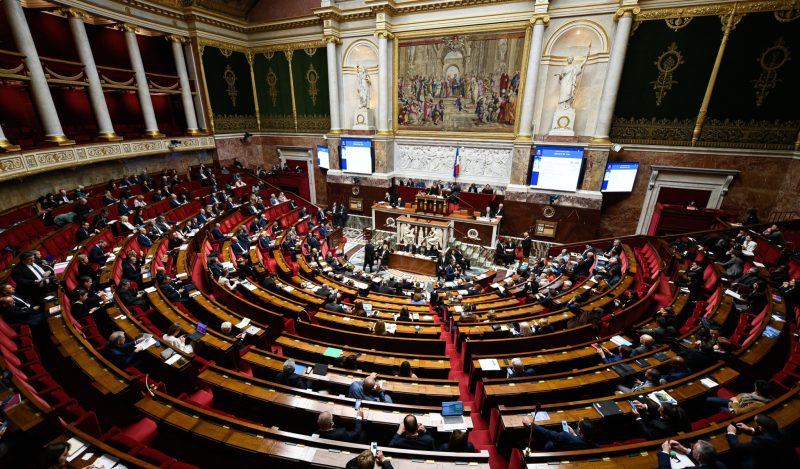Italy has been my home for most of the last twenty years. When I arrived in May of 2000, I knew very little about the country, and recall saying to a classmate that there weren’t really any great Italian writers, unlike the French, who had dozens… I will never forget his disdainful look, both for my bottomless ignorance and for my unpardonable suggestion that the “firstborn daughter of the Church”—France—had in any way surpassed her great mother. In time, I learned to love Italy as much as I love France, and politely avoid comparing the two in conversation (although I still sometimes defend the wines and cheeses from the other side of the Alps, when the topic comes up.)
I grew up surrounded by the homogenized ugliness of American strip-malls, and the dull dissonance of housing developments made of brand-spanking-new homes plopped down on bulldozed level lots. Many of the buildings around me had evidently sprung from the mind of lazy architects who couldn’t be bothered to actually plan more than one house, and limited themselves to copy-pasting mirror images of the same ungainly, bloated structures, in lines by the dozens. What I saw upon arriving in Italy was so different that it felt like a different world. Perhaps it really was, and perhaps that world is now gone.
What I saw was this: the new was an organic outgrowth of the old. The work of man and the work of nature and God coexisted in remarkable harmony. Let me give a few architectural examples as a way to approach a topic that has deep roots.
Walking in Rome one day, I saw the remnants of an aqueduct which could not be less than 1500 years old. A fig tree was growing out of the water channel on top, perhaps seeded by a bird who had enjoyed that delicious fruit. Nestled up against the old, long flat imperial bricks, a newer structure in fatter, shorter brick had been built: a small house for a family. It must have been several hundred years old. But its door was new, fitted with an advanced security deadbolt, and the double-paned windows were the very latest in insulation technology. The new truly improved the old, while respecting and rejoicing in the beauty of the layers of history that came before.
When I began to visit the medieval cities of Tuscany and Umbria, I was delighted by their organic order. Streets fanned out from central public spaces, following the curves of the hill-ridges and the tracks that once were made by animals and humans going to the wells or the pasture.
There was no urban planner, no rationally restricted mind imposing grids or symbolic structures on the daily movement of the inhabitants. The city was an expression of life, simply; the Public Thing (res-publica) was the outgrowth of the public itself. Of course I am oversimplifying, yet anyone who has visited these places, or the thousands of similar towns around Europe, knows that my simplification contains a truth.
For me, the Italy visible in its ancient cities came to symbolize an old and beautiful way of conceiving of society: life comes first, and government gives strength and stability to the good solutions that humans devise to improve their living and defend what they love. Government does not come first. Human relations do.
The life I found in Italy revolved in large part around eating. At first, I was frustrated by the amount of time I “wasted” at table—on the order of three hours a day. When do these people work? I complained sometimes. But so many good things happened in those hours, so many conversations, such a deep sharing of life and experience and joy, that in time I learned to appreciate the gentle rhythm. Work was but one important activity among several; it was not the center of life.
Daily human relations had an importance and a density that I had not experienced before. Whereas in my North American city, many café employees seemed like interchangeable parts of a large generic machine, in Italy they presented themselves as the unique hosts of their own parlor, where guests like myself could come to find a welcome and enjoy something special from the kitchen. Many café owners took real pride in the beauty of their décor and the quality of their food. Some, of course, ran tourist-trap operations that aimed at making a buck from the unwary, but a great majority were interested in quality as much as in money. Quality did not only mean the quality of the product, but also the many aspects of service with style and a smile. I went to my favorite restaurants and cafés to feel at home—a home provided by the skill and human “touch” of the host.
A few months ago, Italy instituted a vaccine passport, called the “Green Pass”: a large QR code that can be quickly scanned by an application on a phone. From August 2021 to the present, this pass has been used to progressively eliminate the uncompliant from all social settings except from a few public offices and food stores. The uncompliant cannot go to work, cannot ride public transport, cannot stand at the café counter to down a quick espresso. They cannot have their hair cut. They cannot even go shopping for non-essential goods. They are however allowed to buy food.
Last week, there was an ambiguity regarding the buying of “non-essential” products available in supermarkets: would such a purchase be against the law? The magnanimous government clarified the question in a FAQ: it is permitted for the great unwashed to purchase clothing and bedding in supermarkets, but not elsewhere. Stiff fines have been threatened. The pass is epidemiologically useless, perhaps even counterproductive: but the law has teeth, and most Italians sighed and complied, got the vax and the Green Pass, and went on muddling through.
The violence of this approach to government slices deeply against the grain of everything that has made Italy great. Italy has never been known for its efficiency. But there is some magic here nonetheless that makes it one of the most desirable places on earth. Italy may not have a reputation for legality, yet even so it has often been an important player in world affairs. Italy may have made the jokesters at The Economist laugh for the rapid turnover of its governments; yet even so, it has also been one of the best economies and one of the most creative places on earth for decades, and in many cutting-edge industries, not only in the obvious excellencies like tourism, cars and high fashion. Italy’s greatness seems to be in spite of its governments, not because of them.
I do not see any reason to think that the Green Pass will lead to an enlightened age in the Bel Paese. On the contrary, it is rapidly producing a distressing fragmentation of society through the introduction of fear and government presence in all human relations, even the most basic. One example from this morning: after church, I stopped by my favorite café, a lovely spot under the arches near the cathedral. It was cold, and the heaters were lit around the outside seating area. I couldn’t wait to sit in the warmth with a coffee, a croissant, and the Sunday paper.
The waiter came to ask for my order, but first he asked if he could see my Green Pass. I said he could not. He was confused, and said he would go speak with his colleague. Through the open door, I caught the eye of the main barman, and waved. He knew I was a regular, and came out to see what we could do. He reminded me that “non si potrebbe,” a typical Italian grammatical structure that means “it isn’t strictly permitted,” The phrase usually also means that whatever has been asked will be permitted in this case, however. He said there could be fines for both of us, and he isn’t the owner. If he were, things would be different.
I agreed, and said I did not wish to cause him trouble. But I remained seated, and smiled. He did too, and brought me a coffee and a croissant.
A few minutes later, I got up and went inside to pay. I thanked him and said “I am glad the government has very little to do with the relationship between you and me”. He smiled again and shook my hand. A small victory: an instant of life, a flower blossoming amid the rubble. This is the Italy I love.
Enough of these blossoms, and we can have our lives back.
Published under a Creative Commons Attribution 4.0 International License
For reprints, please set the canonical link back to the original Brownstone Institute Article and Author.









